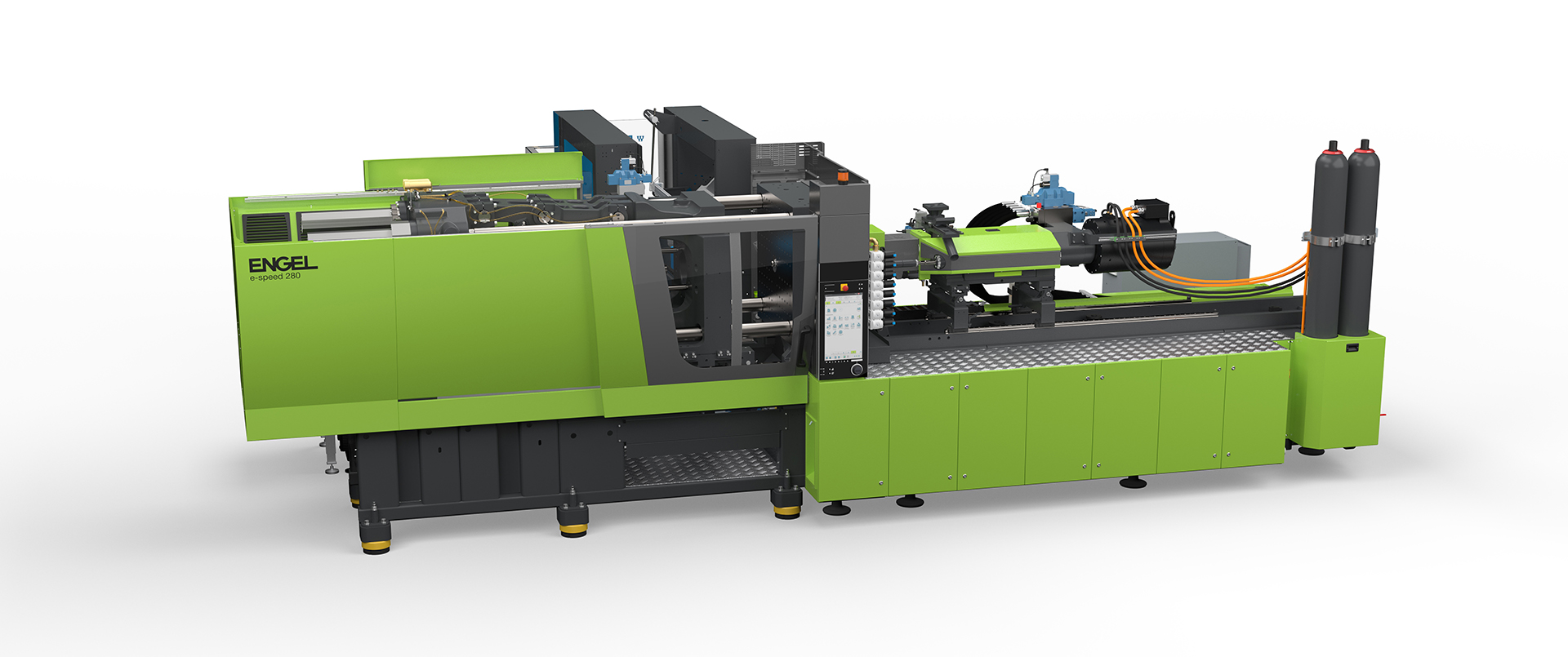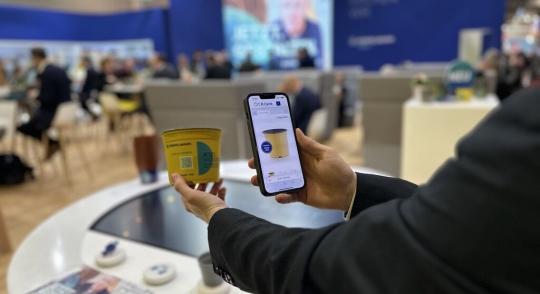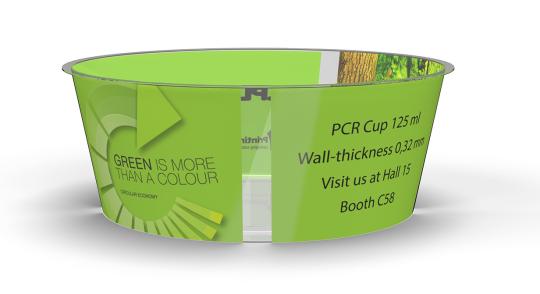

Engel shows injection-molded cups made of recycled PET with digital product passes
ENGEL has developed a new manufacturing process for injection-molded cups that represents a quantum leap for the packaging industry. The Austrian injection moulding machine manufacturer processes recycled material (rPET) directly in injection moulding in just one process step. An ENGEL e-speed injection moulding machine with a newly developed and extremely powerful injection unit is used for the process.
The recycled monomaterial product is at the same time fully recyclable again. To exploit this potential, Engel has also equipped the cup with a digital product passport from R-Cycle. This stores all recycling-relevant information, such as the type of plastic, printing inks and other additives. The product passport can be accessed via special markings - so-called digital watermarks - on the cup to make recycling streams digitally traceable in the sorting and recycling process and to keep the recyclables in a closed loop for as long as possible.
Featuring a wall thickness of 0.32 millimeters, the transparent, round 125-ml containers are representative of a whole genus of packaging, especially in the food industry. Thanks to integrated in-mould labelling (ILM), the containers are ready-for-filling as soon as they leave the production cell. The special feature in this application is the material. The thin-walled containers are produced directly from rPET in a single step. Up to now it has only been possible to process PET in thick-walled parts such as bottle preforms in injection moulding. The final packaging format was created in a second step of the process – by blow moulding for example.


ENGEL e-speed injection moulding machine.
Picture: ENGEL
Bottle-to-cup and cup-to-bottle as the target
Under the European Plastics Pact, the intent is for all plastic packaging to contain 30 percent recycled material and to be 100 percent recycling capable by 2025. The typical materials for packing foods in thin-thin-walled containers are polyolefins or polystyrene. However, experts estimate that it will be impossible to achieve the stated objectives with these materials. And the recycling flows lack the approval of the European food authority, EFSA. rPET offers a solution for avoiding penalties and special taxes here. Although the price for PET is high right now, this makes the material a cost effective alternative. EFSA has approved numerous recycling processes for PET, ensuring that the material is available in Europe.
PET offers the benefit of a close recycling loop already being in place. To date, PET is the only packaging material which can be processed as a recycled material on an industrial scale to create food packaging. This innovation sees partner companies pave the way for removing the need to downcycle packaging products other than bottles, and opens up an opportunity for recycling or even upcycling. This would substantially extend the range of uses for PET and rPET. In addition to the bottle-to-bottle cycle, this also means that the establishment of bottle-to-cup or even a cup-to-bottle recycling is conceivable.

„Away from the closed loop via the deposit return of standardized PET bottles, establishing high-quality recycling streams is a challenge, Packaging that is disposed of via household waste cannot be identified with sufficient precision in waste sorting to be recycled by type. Digital product passports provide the information needed to target products for recycling after use."
Klaus Fellner, Circular Economy Team Leader at ENGEL
R-Cycle provides an interoperable data infrastructure for digital product passport operations, allowing producers to efficiently and automatically capture data, then link it to the product in an open standard format. The system is based on global GS1-standards and was developed in collaboration with leading global industry experts from across the packaging value chain.
More Success Stories from R-Cycle



